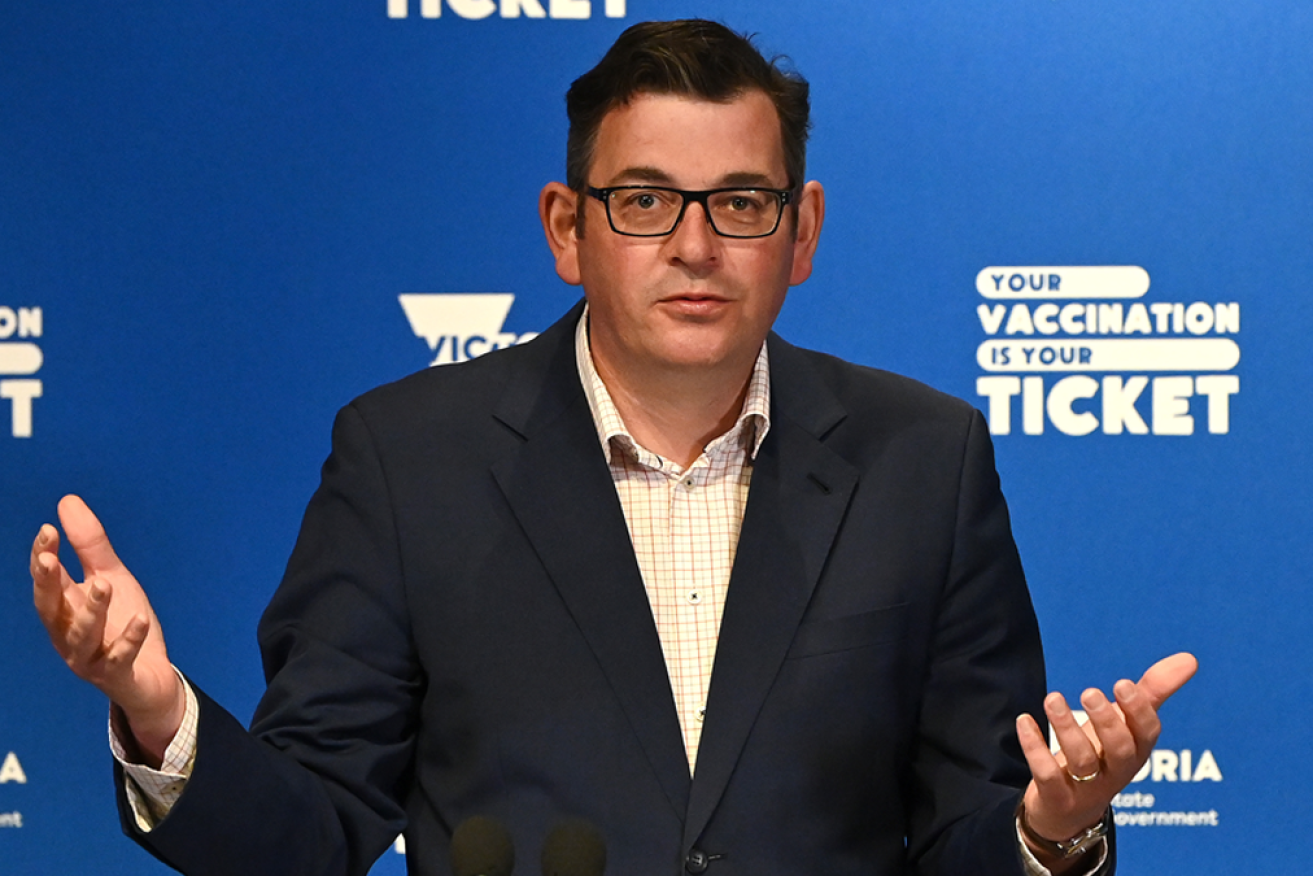Why the changes to Victoria’s state of emergency legislation are so controversial


The Victorian government is pushing ahead with reforms to the state of emergency. Photo: Getty
The state government of Victoria wants to change how lockdowns are imposed in future, and the controversial plan has been slammed by the opposition, lawyers and, most recently, anti-lockdown protesters.
Premier Daniel Andrews says the changes would make enacting lockdowns a much smoother process in the event of a future pandemic.
But critics argue that it will give the government too much power with too little oversight.
“We have learned a lot over the past two years of a once-in-a-generation pandemic, and we are applying these lessons to manage pandemics in the future – while maintaining our ability to rapidly respond to outbreaks,” Mr Andrews said in October.
The changes have already passed the lower house and are set to be debated in the upper house this week.
Already several amendments have been made after negotiations with three crossbenchers continued on Monday night.
However, sweeping powers still remain.
Here’s what they entail.
What are the proposed powers?
The proposed changes would put the premier in charge of declaring a state of emergency in Victoria, rather than the chief health officer, who is an unelected public servant.
Nevertheless, the premier would still need to consult the chief health officer and health minister, justify their actions with relevant health advice, and state how they will protect people’s human rights under any potential lockdown restrictions before taking on the emergency powers.
There would be no limit on how long these sweeping powers could last, despite them being intended for unforeseen emergencies only.
The rules would also introduce Australia’s toughest penalties for breaching lockdown restrictions.
People who deliberately breach a public health order and cause serious health risks to another person in the process can face up to two years in prison.
Individuals could face fines of up to $90,500, and businesses up to $452,500, however the state government said these penalties would be issued “rarely” and only for serious infringements.
In New South Wales, the power to declare a state of emergency is already vested in a member of the government (the health minister) and unlike the Victorian plan, there’s no requirement for transparency or accountability.
Why the big change?
In Victoria, a state of emergency was initially supposed to last for four weeks, with extensions allowed for up to six months.
These powers were never designed to last as long as they have.
However, the current situation was repeatedly extended and – thanks to amendments in March – the state of emergency is now due to lapse on December 15.
In response to the repeated extensions of the state of emergency over the past two years, Victoria’s state Parliament called for specific legislation on how the government should implement pandemic restrictions in future.

Anti-lockdown protesters gathered in Melbourne on Saturday to speak out against the proposed changes. Photo: AAP
Why is this controversial?
The main gripe surrounding the proposed changes is that, according to critics, they make extraordinary crisis powers ordinary.
The Victorian Bar Association has said that while wide-reaching emergency powers might be necessary during a crisis, they shouldn’t be entrenched as the usual way of tackling a health crisis, nor should they be allowed to last indefinitely.
Meanwhile, 14 barristers wrote in an open letter that the changes “may allow the Victorian government effectively to rule the state of Victoria by decree for the foreseeable future, without proper Parliamentary oversight or the usual checks and balances on executive power”.
This sentiment has been picked up by the anti-lockdown crowd, who had already been criticising Mr Andrews for imposing lockdowns throughout the pandemic.
On the weekend, protesters in Melbourne simply chanted “Hang Dan Andrews”.
Tweet from @genthorpeee
The Human Rights Law Centre has since called for several amendments, including protecting people’s right to protest in a COVID-safe way, and adding an upper time limit on how long these emergency powers could last.
“Given the extreme powers that can flow from the making of a pandemic declaration, it is reasonable and appropriate to set an outer time limit on the ability to extend it,” the organisation said.
The two forms of oversight in the proposal are an independent panel appointed by the government (of which some have questioned the impartiality) and the cross-party Scrutiny of Acts and Regulations Committee (SARC), which can be dismissed by the Governor in Council, on the recommendation of the health minister.
Does the bill have support in Parliament?
The bill has already passed the lower house, and the Labor state government was engaged in 11th-hour negotiations with three key crossbenchers on Monday: Samantha Ratnam from the Greens, Fiona Patten from the Reason Party, and Anthony Meddick from the Animal Justice Party.
The crossbenchers pushed for and have been granted a number of amendments to the bill, including scrapping the proposed harsh fines, reducing the time frame for public health advice to be published ,and granting Victorians the right to appeal against detention orders at the Victorian Civil and Administrative Tribunal.
The laws will now go before the upper house on Tuesday, where the three MPs are expected to support the amended legislation.
All three have reported receiving abuse or even death threats from anti-lockdown protesters.
Victorian opposition leader Matthew Guy slammed the proposed changes as an “attack on democracy” and said he’d scrap them if elected premier in 2022.








